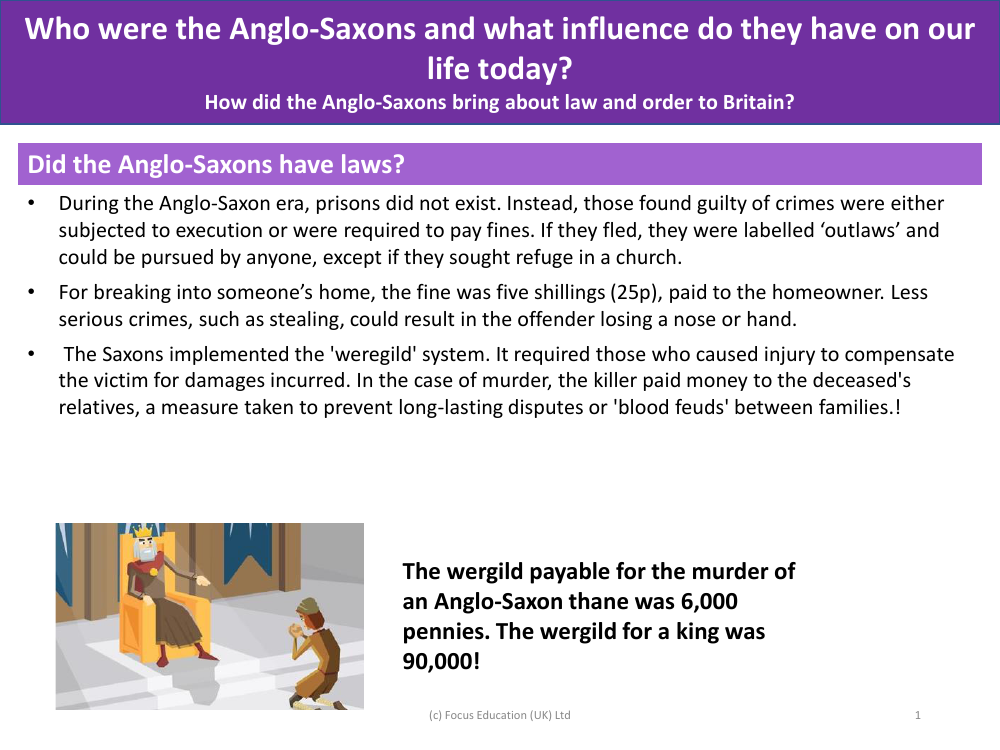Did the Anglo-Saxons have laws? - Anglo-Saxons - Year 5

History Resource Description
The Anglo-Saxon period in Britain was marked by a unique legal framework as prisons were not a part of their justice system. Instead, those found guilty of committing crimes faced either execution or the imposition of fines. In the event that an individual chose to flee rather than face punishment, they were declared 'outlaws,' a status that allowed anyone to pursue them, with the sole exception being if the fugitive sought sanctuary within a church. For instance, the act of breaking into someone's home carried a fine of five shillings, equivalent to 25 pence, which was to be paid directly to the victim of the burglary. Lesser crimes, such as theft, might have had more physically severe consequences, including the amputation of a nose or hand as retribution.
Moreover, the Anglo-Saxons introduced a compensation system known as 'weregild'. This system obliged individuals who inflicted harm upon others to financially compensate the victims for their losses. This was particularly significant in the case of homicide, where the perpetrator was required to pay a sum of money to the family of the deceased. This payment varied depending on the social status of the victim; for example, the weregild for the murder of an Anglo-Saxon thane was set at 6,000 pennies, while the killing of a king demanded a weregild of a staggering 90,000 pennies. The primary objective of this system was to prevent the escalation of violence and the development of enduring feuds between families, thus contributing to the maintenance of law and order in Anglo-Saxon society.






